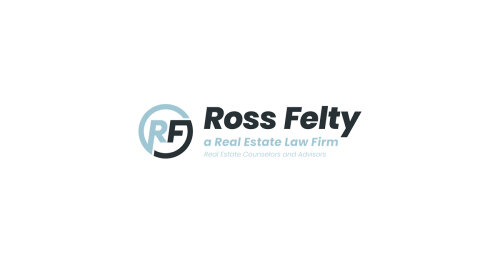Best Transportation Lawyers in Florida
Share your needs with us, get contacted by law firms.
Free. Takes 2 min.
Or refine your search by selecting a city:
List of the best lawyers in Florida, United States
About Transportation Law in Florida, United States
Transportation law in Florida encompasses the rules, regulations, and statutes that govern the movement of people and goods within the state. This area covers a wide range of topics, including motor vehicle regulations, public transit systems, trucking and freight, aviation, maritime navigation, and infrastructure. Florida’s unique geography, large population, and major ports make transportation regulations especially important for ensuring safety and efficiency across highways, railroads, airports, and seaports.
Why You May Need a Lawyer
Individuals and businesses may need a transportation lawyer in Florida for many reasons. Common situations include traffic accidents, disputes with insurance companies after a collision, commercial trucking violations, regulatory compliance for transportation companies, issues arising from public transportation, defending against traffic tickets, and cargo loss or damage claims. If you operate a taxi, rideshare, or commercial vehicle, or are involved in logistics or distribution, legal assistance can help you navigate the complex rules and avoid costly penalties. Even private drivers may need help dealing with traffic infractions or license suspensions.
Local Laws Overview
Florida has a robust set of laws that impact transportation. The Florida Statutes, particularly Chapters 316 through 341, cover everything from vehicle operation and driver licensing to public and commercial transit regulations. Key aspects include:
- Strict regulations on drunk and distracted driving
- Insurance requirements for both private and commercial vehicles
- Different licensing and permitting rules for commercial drivers and vehicles
- Regulations governing transportation network companies such as rideshare services
- Rules for the safe transport of hazardous materials
- Oversight of ports and waterways, including boating safety laws
- Specific requirements for school transportation and child safety
- Provisions for accessible and equitable public transportation
Violations of these laws can result in fines, license suspension, business penalties, or even criminal charges depending on the severity of the offense.
Frequently Asked Questions
What should I do if I am involved in a car accident in Florida?
First, make sure everyone is safe and seek medical attention if needed. Report the accident to law enforcement and exchange information with involved parties. Document the incident with photos and contact an attorney if you have questions about your options or the insurance claims process.
What are the minimum insurance requirements for vehicles in Florida?
Florida requires drivers to carry Personal Injury Protection (PIP) and Property Damage Liability (PDL) coverage. Commercial vehicles often require higher minimum coverage amounts and specific types of liability insurance.
Can I fight a traffic ticket in Florida?
Yes, you have the right to contest traffic infractions in court. An attorney can help you understand your options and represent you if you believe the ticket was unwarranted or if it could lead to serious penalties.
How are rideshare drivers regulated in Florida?
Rideshare drivers must comply with background checks, vehicle inspections, and insurance standards set by both state law and the rideshare companies. Specific legal concerns may arise if you are involved in an accident while driving for these services.
What are the requirements for commercial trucking in Florida?
Commercial trucks must meet federal and state regulations on equipment standards, driver qualifications, hours of service, weight limits, and hazardous material transport. Violations may result in fines, license suspensions, or other penalties.
How do I address a license suspension or revocation?
If your license has been suspended or revoked, you may be able to appeal or seek reinstatement. An attorney can guide you through the process and help determine your eligibility for hardship licenses or other remedies.
What laws affect boating and maritime transportation?
Florida law covers registration, safety equipment, operator licensing for certain vessels, and rules for impaired boating. Maritime commerce may also be subject to federal regulations.
Are there special laws for transporting children?
Yes, Florida requires child safety seats and restraints appropriate for the child's age and size. School transportation vehicles are also subject to driver background checks and additional safety standards.
Do commercial vehicle operators need special licenses?
Yes, commercial drivers must have a Commercial Driver License (CDL) and may require additional endorsements depending on the type of vehicle or cargo being transported.
What are my rights if my cargo is damaged or lost during transit?
Depending on your shipping terms and the cause of damage or loss, you may have claims under state or federal transportation laws. Legal counsel can help resolve disputes and seek compensation.
Additional Resources
For further assistance and to learn more about transportation laws in Florida, consider reaching out to:
- Florida Department of Highway Safety and Motor Vehicles - Vehicle registration, driver licensing, and traffic law information
- Florida Department of Transportation - Oversight of public and commercial transit systems
- Federal Motor Carrier Safety Administration - Commercial trucking and freight regulations
- Local Metropolitan Planning Organizations - Public transit and infrastructure resources
- Florida Bar Lawyer Referral Service - For referrals to qualified transportation law attorneys
Next Steps
If you need legal assistance in a transportation matter, start by gathering all relevant documents such as citations, accident reports, insurance correspondence, and contracts. Contact a qualified attorney who specializes in transportation law in Florida for an evaluation of your case. Many attorneys offer free or low-cost initial consultations. Take action quickly, as there may be deadlines for filing claims or responding to legal notices. Staying informed about your rights and obligations can help you protect your interests and resolve transportation issues effectively.
Lawzana helps you find the best lawyers and law firms in Florida through a curated and pre-screened list of qualified legal professionals. Our platform offers rankings and detailed profiles of attorneys and law firms, allowing you to compare based on practice areas, including Transportation, experience, and client feedback.
Each profile includes a description of the firm's areas of practice, client reviews, team members and partners, year of establishment, spoken languages, office locations, contact information, social media presence, and any published articles or resources. Most firms on our platform speak English and are experienced in both local and international legal matters.
Get a quote from top-rated law firms in Florida, United States — quickly, securely, and without unnecessary hassle.
Disclaimer:
The information provided on this page is for general informational purposes only and does not constitute legal advice. While we strive to ensure the accuracy and relevance of the content, legal information may change over time, and interpretations of the law can vary. You should always consult with a qualified legal professional for advice specific to your situation.
We disclaim all liability for actions taken or not taken based on the content of this page. If you believe any information is incorrect or outdated, please contact us, and we will review and update it where appropriate.
Browse transportation law firms by city in Florida
Refine your search by selecting a city.












